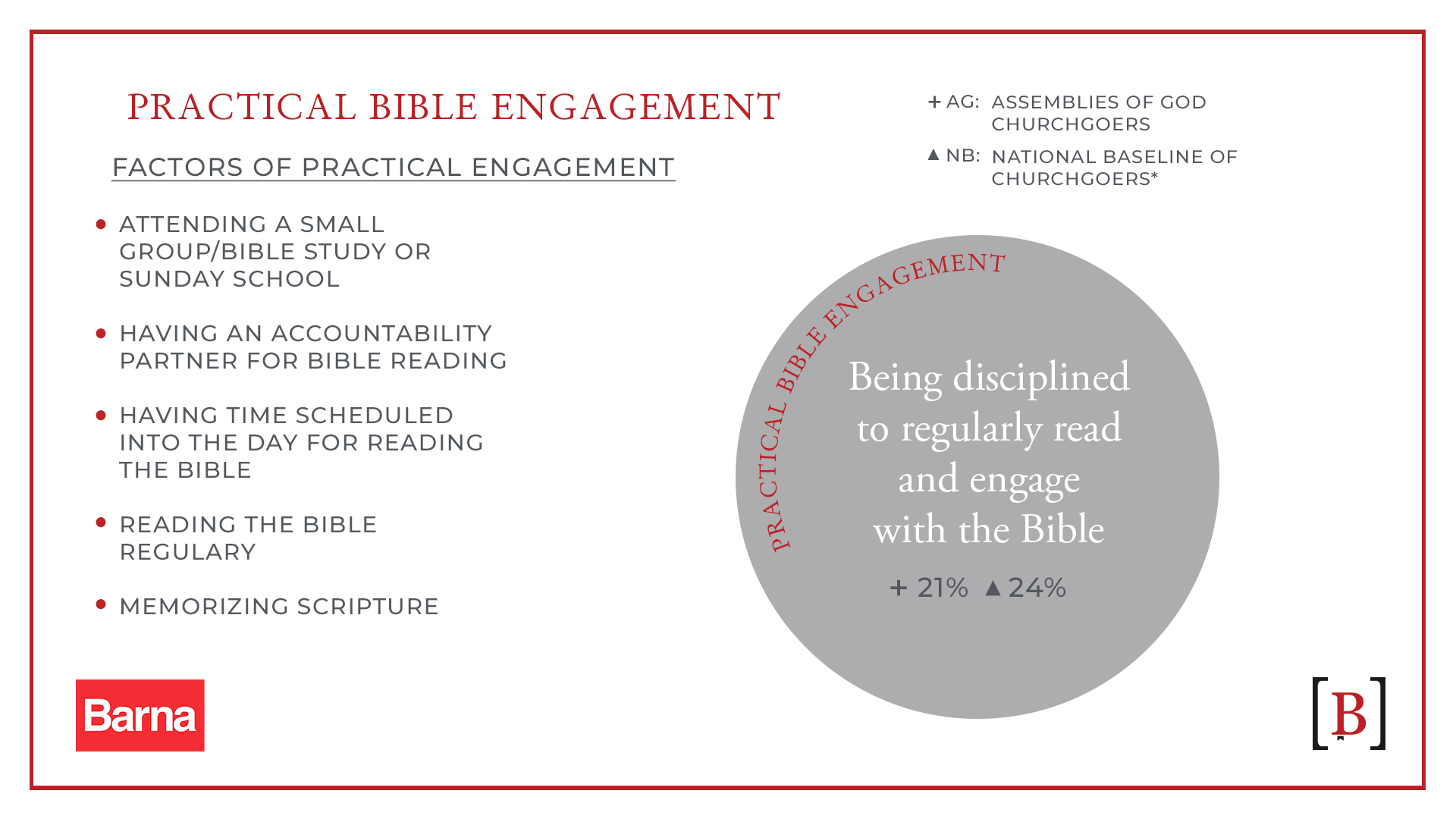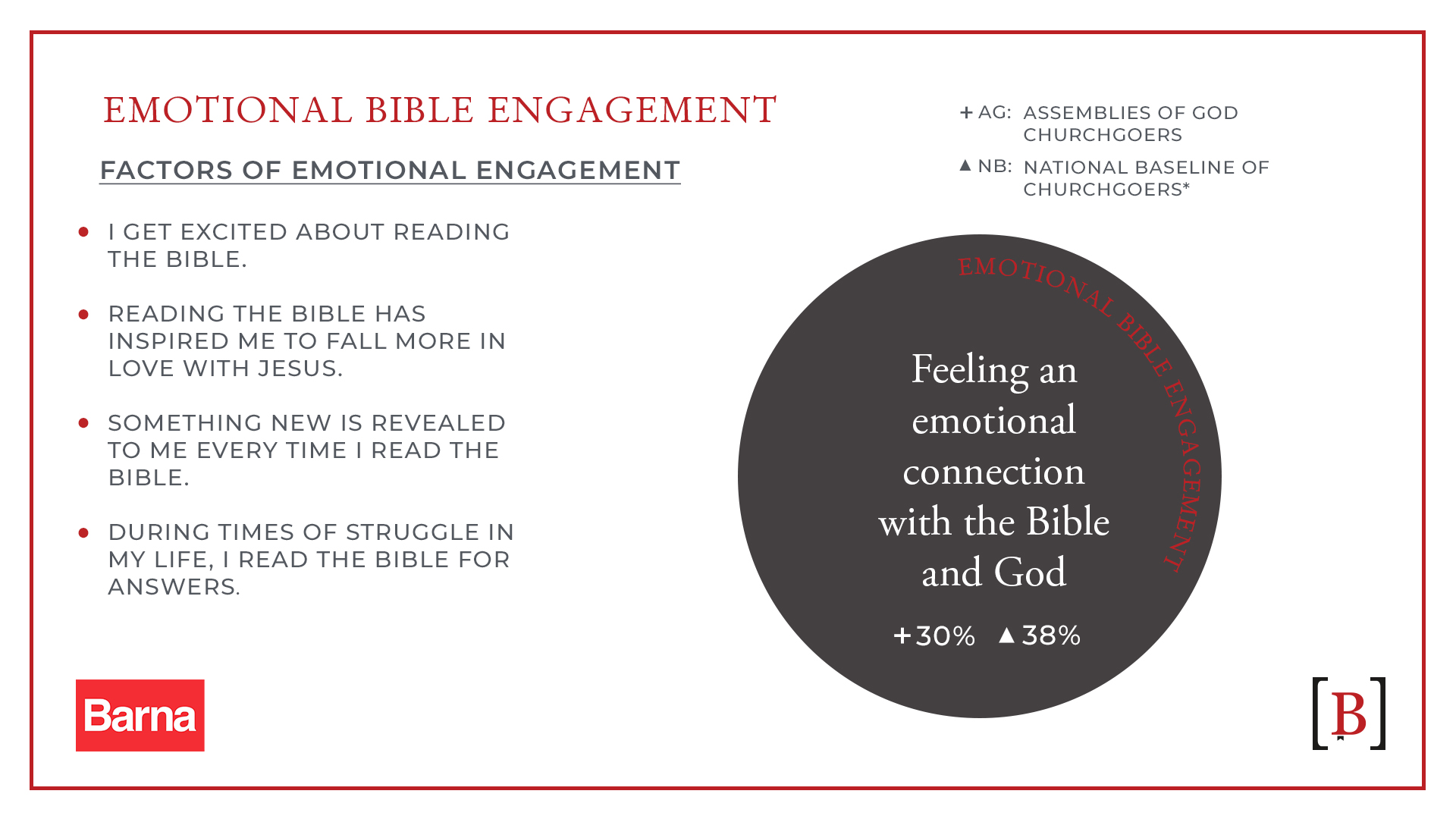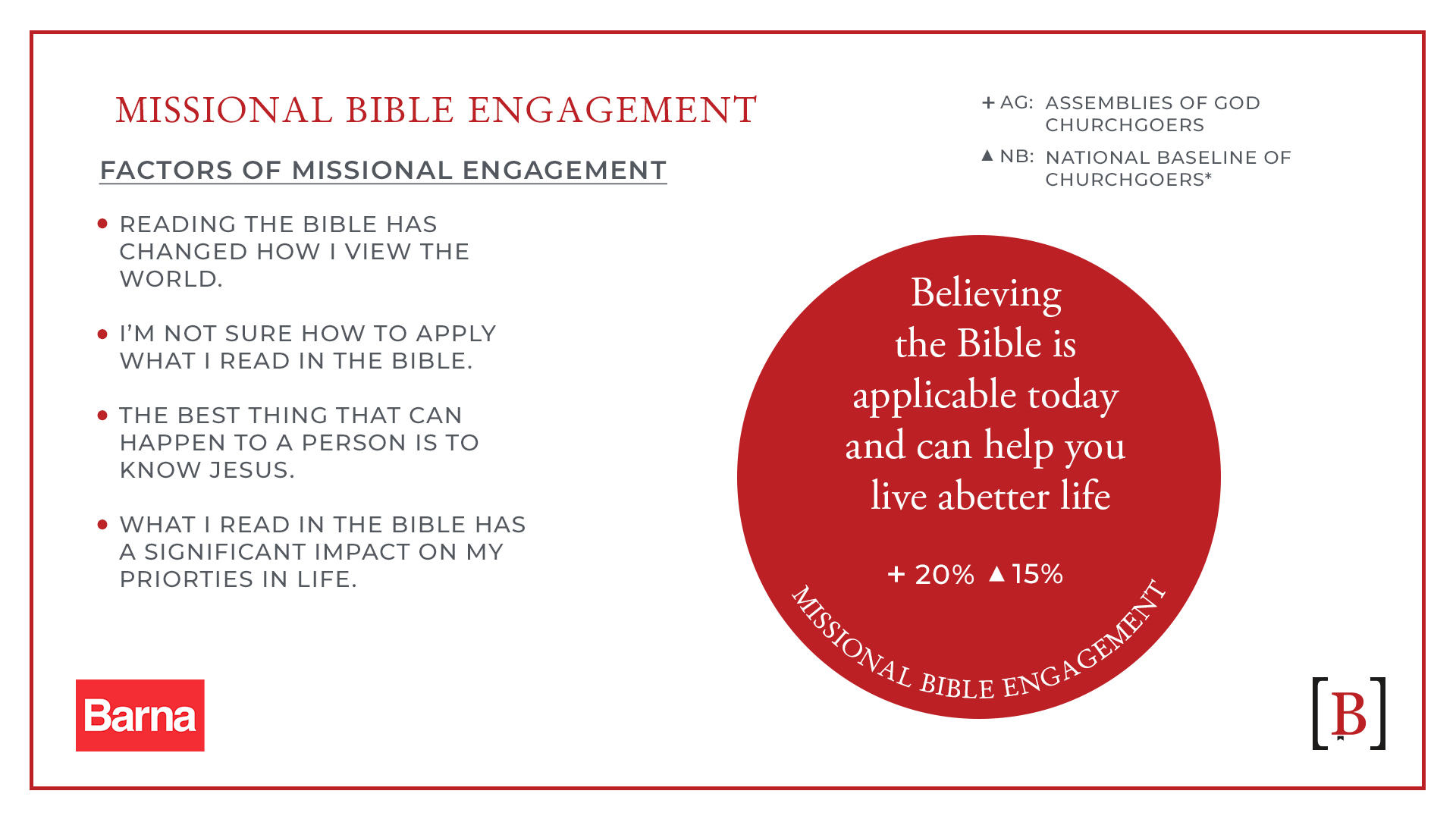The Three Faces of Bible Engagement
By Renée Griffith | Posted In Why It Matters
“Engaging with the Bible” sounds like a fairly straightforward process: read the Bible, understand it, and do what it says. But are these the only markers that determine what Bible engagement looks like, and if so, to what extent can they measure personal devotion and effectiveness?
When the Assemblies of God USA commissioned Barna Group to assess the state of biblical literacy among their adherents and compare that to the national baseline average for Christians of other fellowships, Barna’s starting point was to define the term “Bible engagement.”
To be engaged with Bible, they determined, is to allow all spheres of a person’s life to be heavily and positively influenced by the Word of God. Barna identified these spheres of influence by grouping them into three: practical, emotional, and missional. Each is a face that together forms a complete picture of high engagement with Scripture.
Practical engagement with the Bible is arguably the most common, though partial, definition of what it means to build a life centered on the word of God: habitual, disciplined interaction with the Bible. These practices include weekly attendance at church services and small groups or Sunday school, as well as having an accountability partner for Bible reading. In addition to corporate reading and studying of Scripture, practical engagement is comprised of individual habits of regularly reading, praying through, and memorizing portions of Scripture. Only 21 percent of Assemblies of God churchgoers ranked high in practical engagement, compared to 24 percent of the national baseline of churchgoers.
Emotional engagement is an oft-overlooked component in the holistic definition of a life guided by the word of God but is in large part the driving force behind picking up the Word day after day. People who demonstrated high emotional engagement reported that they felt an emotional connection with the Bible and God. Beyond mere excitement for reading the Bible, those with high emotional engagement indicated in the survey that in times of struggle, they turned to the Bible for answers. They found something new nearly every time they read the Bible, and their habits of Scripture-reading have helped them to fall more in love with Jesus. An engagement not merely of body (practical) but of mind and soul (emotional) paints two-thirds of the picture of Scripture engagement. Whereas 30 percent of Assemblies of God churchgoers indicate a high level of emotional engagement, the national baseline of churchgoers registered at 38 percent.
Missional engagement is not simply Bible-based evangelism but is a change in worldview. People demonstrating a high missional engagement report that the Bible has significant impact on their priorities, to the extent that they believe the best thing that can happen to a person is that he or she can know Jesus. They believe that the Bible is the ultimate authority for how Christians should live their lives. For this face of engagement alone did the Assemblies of God rank higher than the national baseline of churchgoers: 20 percent compared to 15 percent.
Barna Group collaborated with the Assemblies of God for 18 months to identify and research the three faces of engagement, with the overall result that 19 percent of Assemblies of God adherents scored highly for all three domains while 21 percent of national baseline Christians did the same. The burning questions that led to commissioned research were, “Does the Assemblies of God as a movement demonstrate high Bible engagement, and how does this compare to other Christian traditions?” The answers yielded a low number of highly biblically engaged people, much in keeping with national baseline.
When presenting these findings to the General Council of the Assemblies of God at the Bible Engagement Project unveil in August 2019, Barna Group President David Kinnaman explained, “We at Barna do social research, and through this we see a clear correlation between Bible Engagement and the kind of Christians we see in churches. The more Bible-engaged AG attenders are, the more like Jesus they seem to be.” The reverse is also true.
Kinnaman noted that in the section of the study focusing on AG pastors, he found it fascinating that they quoted more Scripture per sermon than the average non-AG pastor. “You have a culture that is leaning toward higher biblical engagement than the national average. There is a lot of room for growth, but your culture is predisposed for this.”
His conclusion: “From this study, as well as many other projects we’re doing in relation to the Bible, you in the AG have a strategic and urgent need to focus on Bible engagement. You don’t just need more people attending [your churches]; you don’t just need more people in the building. You need more people in the Word of God. You need more people who are resilient when life throws them the worst that the world can offer. I know you care about this, but the urgency of it and the strategy required for it, I couldn’t more strongly state that to you tonight.”
General Council attendees found the results shocking, enlightening, and inspiring in terms of action. In conjunction with Kinnaman’s presentation, the Bible Engagement Project unveiled a sneak-peek at Listen, a 40-week Bible study series launching August 2020 that is curated for all ages (adults, youth, children, preschoolers) to study the same Scriptures in age-appropriate fashion. This digital resource for small groups is designed to lead church cultures back to center—to the Word of God. The goal? To cultivate entire congregations who look to the Bible for transformation.





